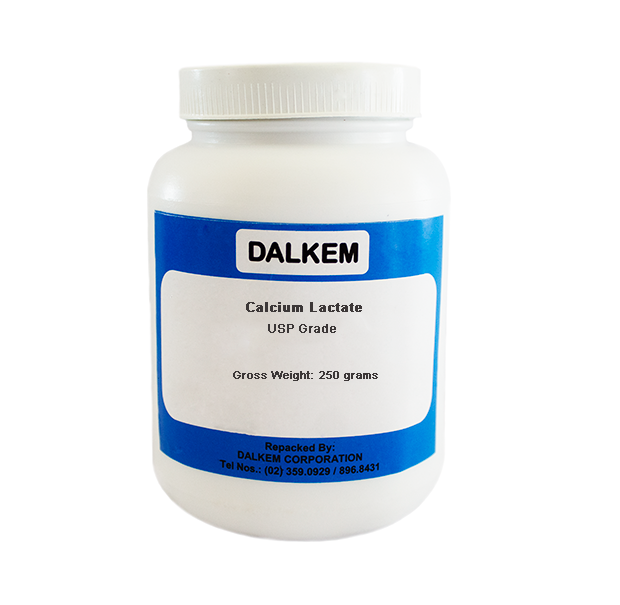Calcium Lactate USP Grade
Calcium lactate is produced by mixing lactic acid with calcium carbonate or calcium hydroxide.
While it’s used as a calcium supplement and to fortify foods, calcium lactate fills a variety of roles in the food industry as an approved firming agent, thickener, flavor enhancer and leavening agent.
Prevent Calcium Deficiency
The primary reason to take calcium lactate is to prevent or treat a calcium deficiency. Your calcium may be too low if you don’t consume enough calcium and vitamin D.
Other causes of low calcium include a magnesium deficiency and disorders of the parathyroid glands or kidneys. You may not experience any symptoms until your calcium levels become moderately low. At that point, you may have dry skin or muscle cramps. As the deficiency becomes more severe, it may affect your brain, cause muscle spasms and seizures or trigger an irregular heartbeat.
Maintain Strong Bones
Calcium is essential for transmitting nerve impulses, stimulating muscles and regulating hormones. It also helps control the constriction and relaxation of muscles in your blood vessels.
When you don’t consume enough calcium, your body takes it out of your bones to maintain the constant level needed in your bloodstream to sustain its other critical roles. If you don't restore the calcium in your bones, whether by changing your diet or taking a supplement such as calcium lactate, you may develop osteoporosis.
Requirements and Dosages
All adults should consume 1,000 milligrams of calcium daily. The best dietary sources include milk and dairy products, leafy greens, broccoli and fortified foods such as orange juice and ready-to-eat cereals.
When you take calcium lactate, don’t consume more than 500 milligrams in one dose because that is the maximum amount of calcium your body can absorb at one time.
Take smaller doses two or three times daily, preferably with a meal. Calcium lactate is better absorbed when you take it with food, according to Drugs.com.






